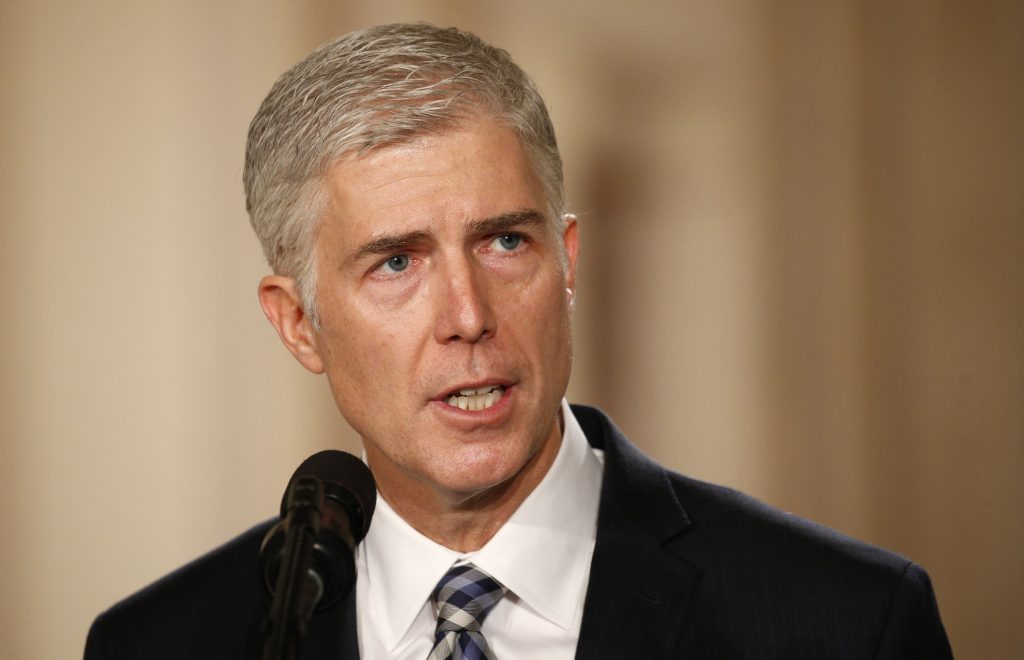In a sharply worded opinion that signals a growing institutional concern, Justice Neil Gorsuch issued a direct rebuke to the federal judiciary's lower ranks on Thursday, warning that continued defiance of Supreme Court precedent threatens the very integrity of the legal system.
His remarks came as the Court allowed the Trump administration to proceed with cutting millions in National Institutes of Health (NIH) grants—marking, as Gorsuch noted, the third time in mere weeks that the Court had to intervene in response to a lower court ignoring binding precedent.
“Lower court judges may sometimes disagree with this Court’s decisions,” Gorsuch wrote, “but they are never free to defy them.” That principle might seem elementary to the functioning of a constitutional republic, but recent judicial behavior has cast serious doubt on whether that chain of command is still being respected.
At the heart of this latest controversy is the administration’s rollback of diversity, equity, and inclusion (DEI)-themed NIH grants—a move previously upheld by the Supreme Court in April when it lifted a block on terminating DEI-related teacher training programs. But in June, a district judge allowed a virtually identical case involving NIH grants to move forward, basing the decision not on the majority ruling, but on the dissenting justices' arguments. That’s not just unusual; it borders on judicial insubordination.
Justice Gorsuch calls out lower courts for ignoring SCOTUS decisions, noting this is the "third time in a matter of weeks" they have had to intervene.
"Lower court judges may sometimes disagree with this
Court’s decisions, but they are never free to defy them," Gorsuch writes. https://t.co/gjQzBAZszY pic.twitter.com/NkR1112JAA— Katelynn Richardson (@katesrichardson) August 21, 2025
“If nothing else,” Gorsuch wrote, “the promise of our legal system that like cases are treated alike means that a lower court ought not invoke the ‘persuasive authority’ of a dissent… to reach a different conclusion on an equivalent record.” The result is legal whiplash—where federal policies ping-pong between conflicting decisions, all while the Supreme Court’s clear guidance is treated like mere suggestion.
This isn't an isolated instance. Gorsuch cited two other recent examples. One involved a district court’s attempt to block third-country deportations after the Supreme Court had already ruled in favor of the Trump administration. Even Justice Elena Kagan, who had dissented in the original case, sided with the majority to enforce compliance. In another case, a lower court tried to block President Trump’s removal of CPSC members—despite an earlier ruling affirming his authority to do exactly that.
What emerges is a disturbing pattern: lower courts acting as if Supreme Court precedent is optional, and emergency rulings from the highest court are open to reinterpretation or delay. Gorsuch reminded the judiciary that while emergency docket decisions may not decide the final merits, they do inform how judges should exercise equitable discretion in similar cases. That standard, he argues, is being eroded.
These are not small disputes about legal nuance. They are direct challenges to the authority of the Supreme Court and the structural coherence of the federal judiciary. Gorsuch, joined by Justice Brett Kavanaugh, framed the matter in plain terms: the rule of law depends on hierarchy, discipline, and respect for precedent—even when a judge personally disagrees.


